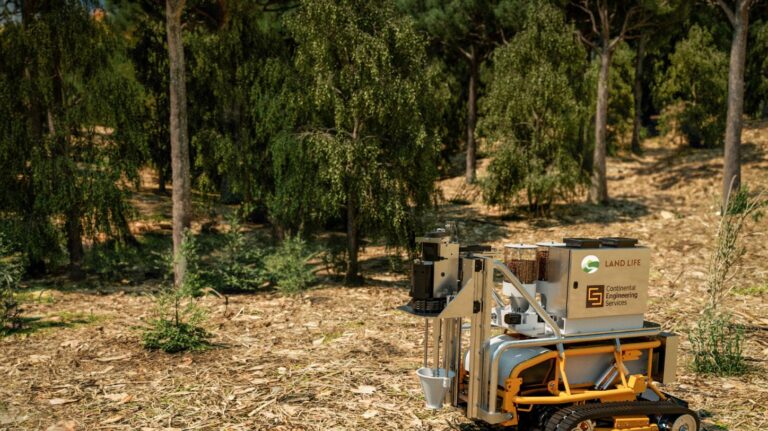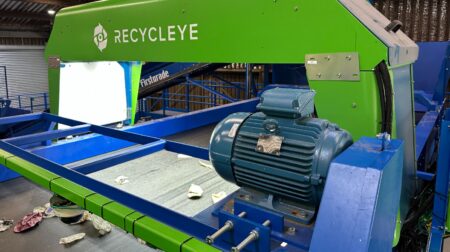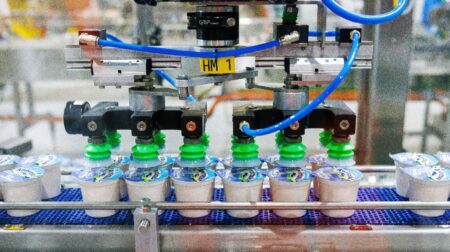German automotive parts manufacturing company Continental and Dutch nature restoration company Land Life have partnered to develop a tree seeding robot to help mitigate the effects of deforestation.
The robot can reportedly sow at a rate of one tree seed per minute, with the remote-controlled vehicle placing up to 60 pits in the ground per hour.
Continental’s in-house engineering and development services provider Continental Engineering Services (CES) is developing the automatic drilling and seeding module for sowing the seed balls.
A robot vehicle from the German manufacturer Stella Engineering, which is already available in the market, serves as the automated driving unit that carries the robot.
“We are pleased to partner with Land Life to jointly develop a sustainable solution for the preservation and protection of vital ecosystems,” says Martin Poettcher, head of CES business division GreenTech.
“We have adapted the robot to our proven, robust automotive technology so that it can operate in an automated and safe way, even in rough terrain. Our collaboration will clearly benefit the environment.”
READ MORE: EU-funded collaboration hub aims to drive sustainable manufacturing research
According to a monitoring report by the World Resources Institute (WRI), global forest loss increased by 24% in 2023: from 22.8 million hectares in 2022 to 28.3 million hectares in 2023.
In total, around 37,000km2 (3.7 million hectares) of tropical rainforest disappeared in 2023.
According to the WRI, the world has lost three to four million hectares of tropical forest per year over the past two decades.
It’s hoped that the seeding robot will offer new possibilities for restoring tree populations, especially in inaccessible terrain – including rocky and sandy zones, extreme inclines and sharp slopes, and slippery surfaces covered with branches and debris – where conventional reforestation methods are reportedly often impractical.
For example, the robot relies on a fully automatic direct sowing method, which first sees ground-covering weeds and grasses removed. The robot then drills a hole at optimum depth and width for the soil and tree.
A seed ball is dropped into the drilled hole using compressed air, and the soil that was initially drilled out is then emptied back over the seed. The process reportedly takes less than a minute.
READ MORE: Royal Academy of Engineering launches £150m Green Future Fellowships
The robot is designed for performance in difficult environments and to cope with varying soil conditions, strong weather, dust and extreme temperature fluctuations.
According to the robot’s developers, this allows large areas of degraded soil to be restored quickly and effectively.
CES also recently developed a weed control system for the automatic removal of weeds and the protection of crops.
The system combines automotive sensor technology and AI to enable ecological, environment-friendly weed management.
Innovations and achievements in sustainability will be highlighted and celebrated at the second annual Robotics & Automation Awards on 06 November 2024 at De Vere Grand Connaught Rooms in London. Visit www.roboticsandautomationawards.co.uk to learn more about this unmissable industry event – and to book your table!









